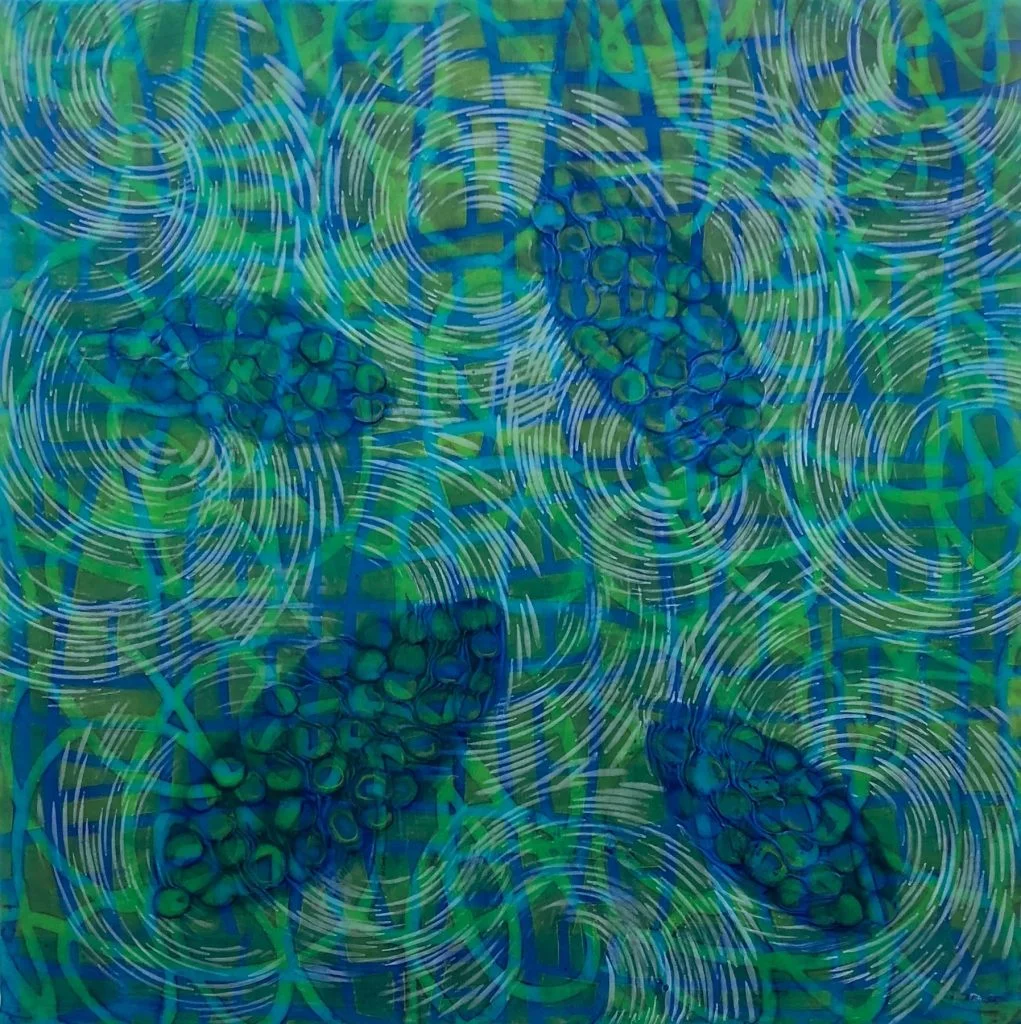Kay Hartung’s Microbial Visions of An Unseen World
With the advancement of science and the ability to view organisms never before seen, Kay Hartung thinks about the great power that such minute things may hold. She contemplates the potential impact of cellular activity on the visible universe and the human species. Over the past two years, she has continued to pursue this interest in her art.
Bio Networks #1
I create my own vision of cells, proteins and viruses that don’t actually exist, but are an artistic evolution from familiar forms. I create colonies of cellular shapes that migrate, flow and multiply.
Bio Networks #3
The process of painting with encaustic* builds layer upon layer of biomorphic forms, suggesting growth, development and movement. I construct environments for these forms, landscapes in which they can interact.
Bio Patterns #13
In many of my works you will see that pattern is a predominant characteristic: repeating shapes, lines and colors to form the works. A background in fibers influences my designs, so I approach my paintings with a textile sensibility.
Bio Patterns #18
The patterns and geometries of the microscopic structures within the body and the natural world intrigue me. I hope viewers will come to see that dangerous diseases and lethal bacteria can be most beautiful and inspiring forms of imagery.
Editor’s note: Encaustic painting, also known as hot wax painting, involves using heated beeswax to which colored pigments are added. The liquid or paste is then applied to a surface—usually prepared wood, though canvas and other materials are often used. Wikipedia
Kay Hartung is a mixed media artist and educator whose art has been exhibited nationally and is included in many private and corporate collections. Additionally, she has created specially commissioned pieces for public and residential spaces. After graduating from the Philadelphia College of Art with a BFA and earning her MFA from Syracuse University, she served on the faculty of Bradford College (MA) in the Creative Arts Division for 20 years. Kay has received grants from the Somerville Arts Council, Malden Arts Council and the Ford Foundation. She is a member of Fountain Street Gallery in Boston, and maintains a studio at ArtSpace Maynard (MA).
READ THE ORIGINAL HERE: The Fictional Cafe






